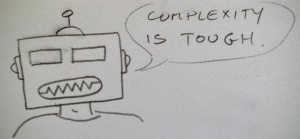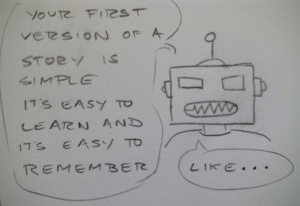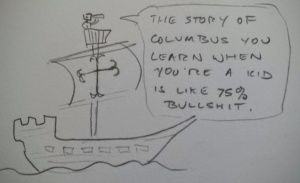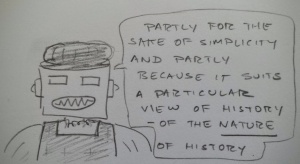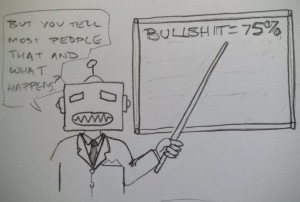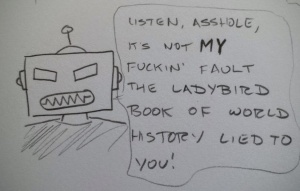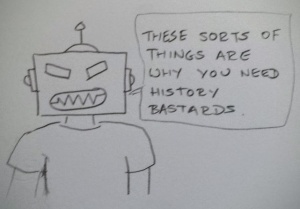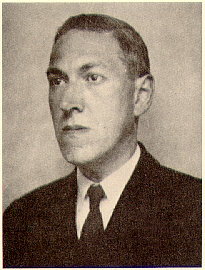I was talking to a friend the other day about daily life in, say, early Imperial Rome and how, as he pointed out, many aspects of it would be familiar to modern people — apartment buildings, elections, jobs, shops, etc. Obviously a lot of it would also be very alien to the modern mind, and we need to be sure all the apartment buildings and banks don’t make it seem more familiar than it really is, but there are definitely ways in which it echoes modern life.

Let’s say, for instance, that you somehow travelled back in time to the first century A.D. or so and that, motivated by some inexplicable urge, you joined the Roman army. In many ways, the experience of military life would have a lot in common with modern military life: orders, officers, drill, marching, training, losing your mess kit and having it stopped out of your pay. Some aspects would be unfamiliar — the Roman army’s fondness for punishing infractions by just beating the living hell out of you, for instance — but the structure would have a lot of similarities. It would be much more obviously similar to modern military life than, say, pursuing a career as a soldier in the 11th century, at least in Britain.

Now, people have, I think, a tendency to assume that history sort of progresses in one direction; that things were once a certain way and that they have evolved over time in a particular direction. Obviously if you know anything about history, you know this is not true. But it seems to be a hard idea to shake for many.
I mention this because it’s coming up a lot in political and moral discussions lately. It seems to be possible for people to simultaneously believe both that the authentic, “original” version of something is what really matters and also that the past is a weird, barbaric place that evolves toward our perfect modern selves. I presume the distinction is to do with things that the speaker thinks would benefit them.
I have to check this kind of “well, in the old days” nostalgia a bit myself; like a lot of people who studied history, I have a little bit of an antiquarian or even romantic attachment to earlier eras, even though I know that they were not as one imagines them. Sometimes, in the old days, Cambridge would sweep me up in all its old-timey pomp and ceremony and I’d daydream about olden times before remembering that in olden times they didn’t let people like me into Cambridge. (That’s assuming I’d even be me in olden times, but you know what i mean.)
So, yeah. Imaginative projection into the past is an interesting way to think about differences between societies, and it’s fun, and its lure is very strong.
